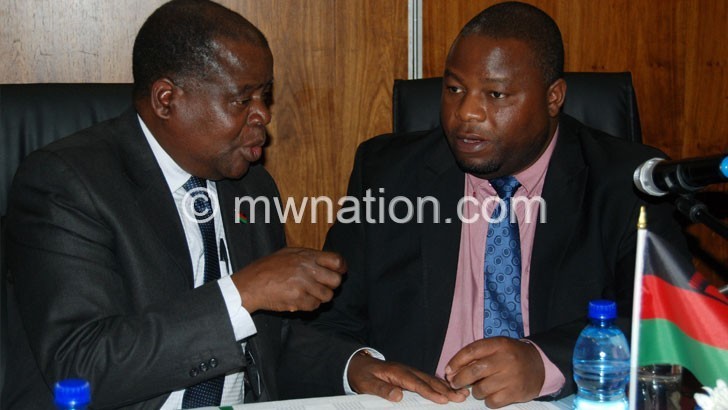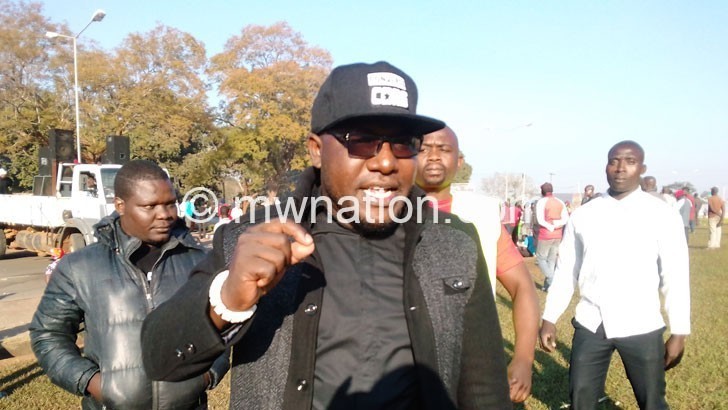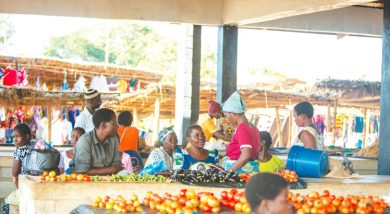Govt moves to fix Fisp
In an apparent move to seal loopholes that messed up Farm Input Subsidy Programme (Fisp) in previous seasons, Ministry of Agriculture, Irrigation and Water Development has devised measures to tackle some of the implementation challenges.
The new measures to improve the programme include insertion of clauses in the contracts of suppliers entrusted to sell the subsidised fertilisers and seeds to around 900 000 beneficiaries during the 2019/20 farming season.
Briefing journalists in Blantyre on Monday on Fisp set to be officially launched in Phalombe today, Minister of Agriculture, Irrigation and Water Development Kondwani Nankhumwa said government had devised the measures to safeguard the programme against abuse or fraud.

In recent years, Fisp, introduced in the 2005/06 agriculture season to boost household and national food security by empowering economically vulnerable smallholder farmers, has faced challenges such as selling of coupons among beneficiaries and some duty-bearers such as traditional leaders, selling of counterfeit seeds or fertilisers and failure to operate in agreed locations.
The new clauses, among others, empower government to disqualify from the programme, terminate an existing contract or ban a supplier from participating in future Fisp contracts.
The penalties will be effected if a supplier is found selling counterfeit fertilisers or seeds not compliant with specifications, selling underweight bags of any fertiliser or seeds, buying coupons from beneficiaries, failing to honour a contract and operating in an area of award without a selling point.
The minister said government will also test all fertilisers and seeds meant for the programme prior to supply to ensure the right quality and quantity.
Said Nankhumwa: “In the event that the supplier submits fake coupons or recycled coupons, the procuring entity shall reject and no payment will be effected.”
He also said a team of scientists from the Department of Agriculture Research Services in the ministry has been put in place to monitor the inputs in various selling points.
Nankhumwa said that besides use of its research scientists, government has also engaged other stakeholders like Malawi Bureau of Standards (MBS), Malawi Police Service (MPS) and civil society organisations, among others.
“We are implementing a reformed and better programme than before for farmers’ and national benefit and progress in agriculture and socio-economic development,” he said.
To further check the malpractice that swallow up the programme year in year out, government has also set up a toll-free number (60606) under Airtel for the public to report any malpractice observed or experienced regarding the programme.
“My ministry will not shield any stakeholder involved in malpractices,” warned Nankhumwa.
This year, the ministry has awarded contracts to 57 private suppliers and two public institutions—Agricultural Development and Marketing Corporation (Admarc) Smallholder Farmers Fertiliser Revolving Fund of Malawi (SFFRFM)—to sell different commodities under Fisp. This represents an increase from last year’s number where 48 private and the two public companies were considered in Fisp.
In the K1.7 trillion 2019/20 National Budget Parliament approved last Thursday, government also reduced allocation to Fisp from K40 billion to K35.5 billion, representing 2.08 percent of the national budget and 21.25 percent of the K167 billion allocated to the agriculture sector.
SFFRFM chief executive officer Andrex Kalinde said his company was ready to supply the inputs to farmers and had already opened 154 shops across the country.
“Our fertiliser is already available in the country currently we have so far received 21 200 metric tonnes [MT] comprising NPK and Urea,” he said.
About 90 000 MT of fertiliser will be accessed this year out of which 45 000 MT will be NPK and 45 000 MT will be Urea.
On the other hand, farmers will also access 4 500 MT of maize seed, 30 MT of sorghum seed, 50 MT of rice seed, 900 MT legume seeds for soya bean, beans, groundnuts, cowpeas and pigeon peas.
To redeem their subsidised 50 kilogramme fertiliser bag, beneficiaries will be paying K4 500 against a market price of K19 500.





